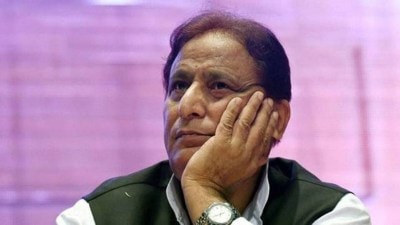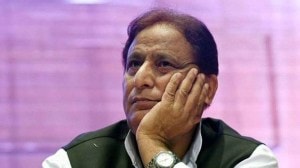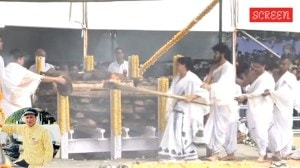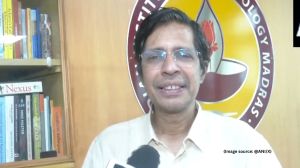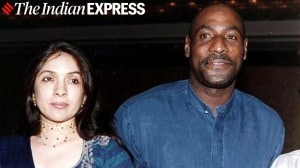End note
Iqbal Bano died last month. But the ghazal she and other legends made famous has been in the death throes for a while now
Iqbal Bano died last month. But the ghazal she and other legends made famous has been in the death throes for a while now
The ghazal was the thread of poetry in our lives. It stirred up love and ache and the wistfulness of a lost age for us. And we would listen,rocking gently in its languor and the whir of the tape recorder,our loyalties bought forever by the husky voice of Farida Khanum or the simpler ditties of Jagjit Singh. In the 1980s and 90s,at its peak,it was also the only musical genre that could challenge Hindi film music in popularity.
For many years now,that strain has had a dying fall. Singer Roop Kumar Rathod cant remember the last time he sang at a ghazal concert. Poet Nida Fazli,who wrote Hosh walon ko khabar kya,a simple creation made popular by Jagjit Singh in Sarfarosh,says real ghazal writing stopped long ago. We have had some meaningless shayari for quite some time now, says the 71-year-old. There are dark whispers of famous ghazal singers being forced to sing at weddings to earn a living. Zafar Gorakhpuri,who wrote extensively for Jagjit Singh and Pankaj Udhas,now lives in semi-retirement in Mumbai. For Shanti Hiranand,who teaches in Gurgaon and was a student of Begum Akhtar,it has meant a sharp dip in the number of students even fewer,she finds,are willing to pour their heart into it. This one is all about emotions. One has to feel the ghazal. When you are more worried about bread,the art sort of dies, she says.
Tune into the popular soundscape and youll realise it has already bid farewell to the ghazalwhen was the last you heard of a new singer,a memorable new album or a film soundtrack with a ghazal? The death of legendary singer Iqbal Bano and the illness of Mehdi Hasan only seem to augur a larger end.
Commercially,companies say,the ghazal is a lost cause. Everybody needs money to sustain. We are passionate about the art form but when I am looking at money,I definitely do think of returns, Anjuman,product head of Sa Re G Ma music. Sa Re Ga Ma had recently come out with Carvaan-E-Ghazal by Talat Aziz-an album with simple poetry for a younger audience. It wasnt even a blip on the charts.
For 75-year-old ghazal singer Rajinder Mehta,who sang the popular Taj Mahal mein aa jaana with wife Nina Mehta in the 1970s,the ghazals decline began,ironically,as it changed from a genre rooted in a cultured set-up of old nobility and embraced the popularity of the masses. Ghazal ka beda gark to humne hi kiya hai. We made it lose respect by giving in to everything in the name of audience demand. We are to be blamed for shifting it to five-star hotels and auditoriums,to maidans and now nowhere. The days of the mehfil are gone, he says. Agrees singer Peenaz Masani,Ghazal was at its peak in 1980s but the mass entry of untalented new voices has diluted it. But since it still has its niche market,you will find pockets of ghazal lovers everywhere.
Even at the height of its popularity though,ghazal was diluting its first impulses and adapting to survive. In its original context,the ghazal extolled wine and love and was considered an urbane,unorthodox counterpoint to religious conservatismand not the soft,nostalgic genre as it is considered today. Much of that context was lost in the music of the 80s and 90s. Jagjit Singh was perhaps the first singer to use a guitar as an accompaniment and his innovations worked. Lalit Pandit,who composed the music for Sarfarosh with brother Jatin,says,In the 80s,ghazal filled the void for good music as the film music of the time was loud and raucous.
But as the vibrancy of its language,Urdu,declined,the ghazal lost its lifeblood. Music labels do not even understand the old poetry that we sing, says Rathod,whose album Manpasand had to do with hideous English translations because the company wanted it that way.
In some ways,the nostalgia has pickled the ghazal into a museum relic and stopped it from dealing with contemporary life and rediscovering itself. Kab tak hum bas sharaab aur ishq ko bechte rahenge,asks Gorakhpuri. It has definitely been the high point of Urdu poetry but there is a lot more to write on,from life and its complexities to todays global situation. Par ab na to literature hai,na hi vo tehzeeb. As far as music companies are concerned,ab literature bikta nahi hai. I cant write the kind of songs that I hear today. Agrees Fazli,There has been no ground-breaking music composed for the genre in the past few years. Many directors dont understand Urdu poetry and end up destroying the meaning of a ghazal by breaking it at wrong places..
Talat Aziz is a rare optimist in this landscape of gloom. Ghazals are a part of our culture. They have been sung for more than 200 years. You cant just forget that. It wont take very long before ghazals are back. All the singers have to form a society to work hard on this one, he says. Rathod is looking at radio channels as an option. If we can get ghazal on the radio,it is bound to do wonders.
Fazli has a more impossible demand. Vo soz vaapis chahiye jahan shayari aur dhun mil jaaye phir se (We need that spirituality back where poetry and music can mingle again), he says. We simply want the poetr y back.
Photos



- 01
- 02
- 03
- 04
- 05


